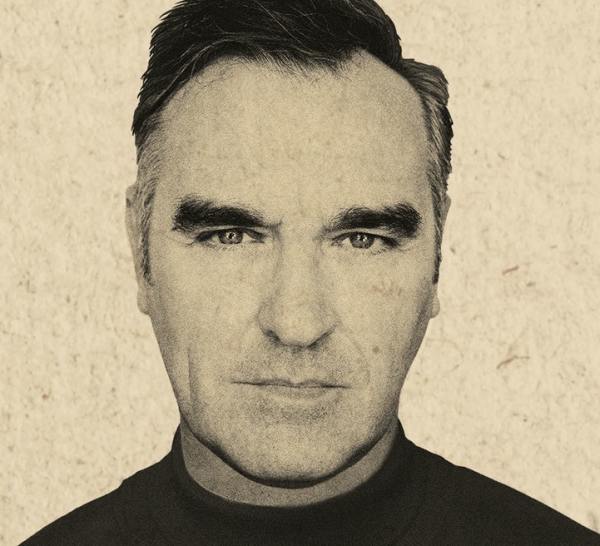For the deeply devoted—and they are legion—there are but two periods in the history of mankind: The time Before Smiths and the time After Smiths. The years B.S. ended in Manchester one May afternoon in 1982, when Johnny Marr—his rockabilly quiff stacked high and retro, Brando-esque Levis cuffed just right—ambled up to 384 Kings Road and knocked on the door. One Steven Patrick Morrissey, unemployable bookworm homebody, who at the ripe old age of 22 was beginning to get the distinct feeling that life had passed him by, answered the door. Marr did not bother with the inane niceties of small talk, and told Morrissey, in so many words, that he was starting a band, it was going to change the world, and you are going to be the lead singer. In that case, you had better come inside, Morrissey said. Years later, after he’d been ensconced as the poet laureate of a lost generation, Morrissey would say he had expected something like this all along, that for years on end he sat vigil in his bedsit sanctum in his mother’s house waiting for destiny to knock on his door.
And so it had.
They went up to Morrissey’s bedroom, which was wallpapered with floor-to-ceiling shelves heaving with books, and all roads seemed to lead to a typewriter on a desk. A failed rock critic, Morrissey had taken to writing poetry as of late. They bonded immediately over a shared love of ’60s girl groups like the Shirelles, the Crystals and the Shangri-Las. “There was so much yearning in those records,” Johnny Marr told me. “They had a great sound, there was a real magic and exuberance about them. Phil Spector’s production work had a gothic intensity. He created these three-minute explosions of sound. It was these mini-symphonies sung by teenagers in Brooklyn and Queens, and each one made a statement. It meant more to me than whatever tired shit was going around in the U.K. in 1982. I wanted to make records that had that kind of intensity. I thought that Morrissey was the only other person who liked the kind of music I liked for the same reasons I did. There is an understanding there, you know?” The next time, they met at Marr’s house. Up in his attic bedroom, they sorted out the truly important things — the color of the label on their first single (blue), the record company they were going to sign with (Rough Trade) — and then they started writing songs.
The Smiths rose to fame on both the catchiness of Marr’s ringing Rickenbacker arpeggios and the sheer poetry of Morrissey’s contrarian lyrics, not to mention his acerbic wit and outrageous public pronouncements. Morrissey, avowedly vegetarian and proudly (if improbably) celibate, gave voice to the quiet desperation of the bullied, the bookish, the bruised and the broken. Out of the gate, Morrissey tapped into a deep well of private despair, sublimated anger and social dislocation, a pervasive sense that the machinery of The Establishment—the school system, the justice system and government itself—was at best incompetent and unresponsive to the actual needs of the people, and at worst cruel and abusive by design. But instead of articulating this emerging anti-Establishmentarian consensus as raw spleen and vitriol, as did the punks that came before him, Morrissey would come bearing flowers, his rage-against-the-machine wrapped in Wilde-ian aphorisms, take-me-back-to-Old-Blighty whimsy and gentle, velveteen guitar pop. Every Smiths song is like a candy apple with a razor blade inside.
It was a heady moment in the arc of pop cultural history, but it seemed like it was over almost before it began. Five years and 73 songs later, the Smith were no more. There is no one reason why the Smiths broke up—money, drugs, ego and bad business decisions all played a role—but it is generally understood that the band’s almost overnight success sowed the seeds of its foreshortened demise, setting into motion a decades-long series of events culminating with the arrival of Morrissey at the BB&T Pavilion on Monday September 9th, with special guests Interpol.
We have a couple pairs of tickets to the show to give away to two lucky ducks. To qualify to win them, you must be signed up for our mailing list (see right, below the masthead), trust us you want to do this. You get first dibs on concert ticket giveaways, breaking news alerts and other assorted be-the-first-on-your-block type shit. After you sign up, send us an email at PHAWKER66@GMAIL.COM saying as much (or that you were already signed up) along with the correct answer to the following Smith’s trivia question: What is “all that a tremulous heart requires”? Put the words SHOPLIFTERS OF THE WORLD UNITE! in the subject line, and include your full name as it appears on your ID and a mobile number for confirmation.
Good luck and godspeed!

